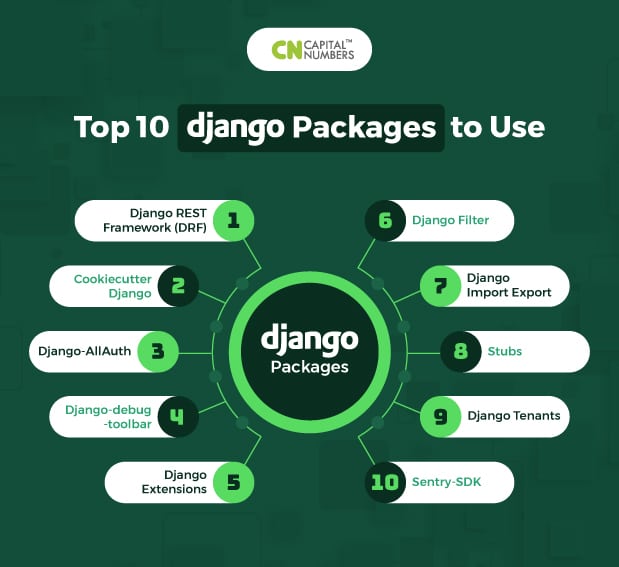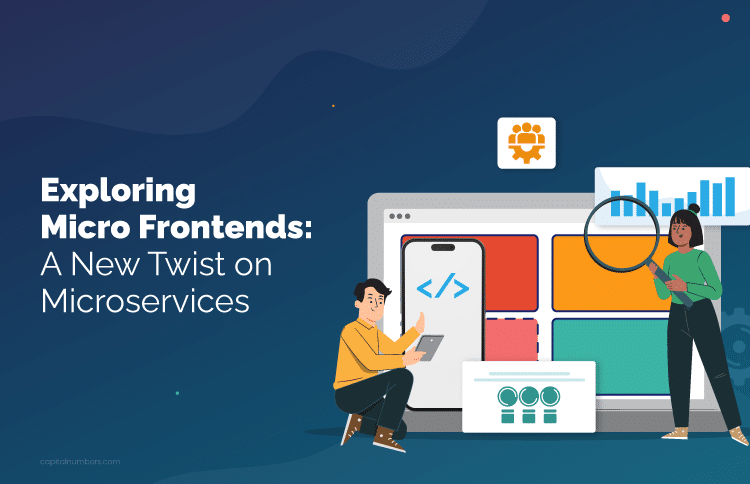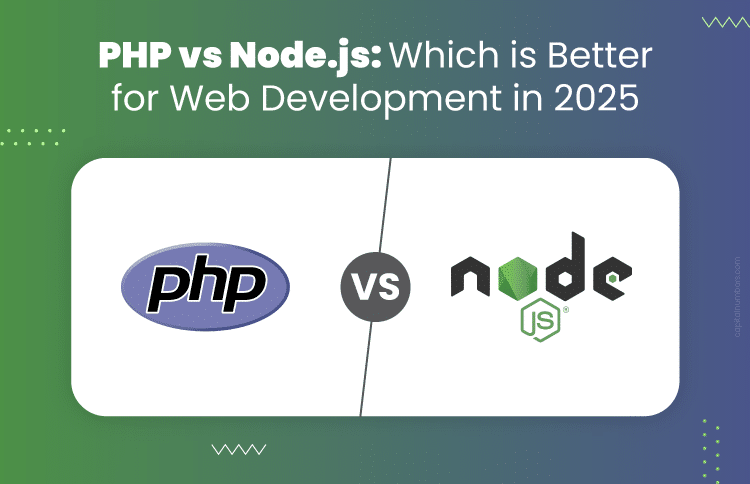Top 10 Django Packages That Every Developer Should Use
Table of Contents
In the fast-changing world of web application development, Django stands out as a powerful Python web framework that has made a lasting impact. Come to meet the need for faster, more efficient, and inherently secure web development, Django has grown into a top choice for developers worldwide.
But what sets Django apart? It has a rich set of built-in features, easy-to-define database schema using Python classes, and offers automatically generated admin interfaces. Security is at its core, making it a trusted choice. Also, Django’s strength lies in its vast ecosystem of powerful packages, offering developers a valuable resource for additional functionalities and features for their projects.
Here, we will discuss the top 10 Django packages essential for almost every Django web app. If you are planning to hire Django developers for your next web application project, they will choose the right packages based on their development needs. However, understanding the top Django packages and their functionalities will help you stay updated and communicate with the developers effectively. Let’s dive in.
Understanding Django Packages
Django Packages is a comprehensive repository and directory of reusable Django apps, packages, and libraries. Created by the Django community, these packages are an essential resource for developers looking to improve their Django projects with extra functionalities and features.
Also, Django Packages offer a wide range of pre-built solutions. They can save developers time and effort. Besides, they cover various aspects of web development, such as authentication, user management, data manipulation, API integration, etc. Overall, they speed up Django development by offering a curated collection of reusable components.
Modules Vs. Packages
If you work with the Django framework, you might know the terms “modules” and “packages”.
A module is a reusable code you can include in your Django project. Also, it is great for adding functionalities to your apps. Packages are different from modules. A package is a collection of files. Consisting of Python code and documentation, it is ready to be used by Django applications.
Unlike modules, which can be used interchangeably within a Django project, packages should be used with an explicit dependency on the package’s name—for example, Django-tables.
Also, packages provide a vital advantage over modules. Generally, they are more reliable and easier to maintain because developers who created them test them more thoroughly than individual modules.
10 Best Django Packages for Developers
1. Django REST Framework (DRF)
If you need a robust and versatile toolkit to create Web APIs, Django REST framework is an excellent choice. It simplifies serialization and is especially beneficial if you already have experience with Django, as it builds upon Django’s class-based views.
Using this framework, you can define API endpoints as Django views, map them to URL patterns, and effortlessly serialize data into formats like JSON or XML. Also, it offers various authentication options like token authentication and OAuth, along with the ability to establish detailed permissions for precise API access control.
2. Cookiecutter Django
Cookiecutter Django simplifies the creation of Django projects by providing a standardized and efficient setup. It comes with various generation options, optimized development, and production settings.
Also, it helps generate well-organized project structures, ensuring adherence to best practices and inclusion of essential files and configurations. You can integrate it with MailHog for local email testing and Sentry for error logging. By automating these initial steps, Cookiecutter Django lets developers save time and focus on building Django applications with ease.
3. Django-AllAuth
If you’re looking for a widely used and user-friendly package for your Django project, Django AllAuth is an excellent choice. Equipped with numerous features, it offers Django experts a robust solution for seamless user authentication and authorization management.
Integrating Django AllAuth into your project grants you effortless management of user registration, login, password reset, and social authentication, guaranteeing a secure and user-centric experience. It can connect various social accounts to a local account. Additionally, it boasts features like a streamlined password recovery flow and email address verification. It also provides a system for storing access tokens and facilitating wall updates, easily handling social and local logins.
4. Django-debug-toolbar
It is an essential tool for Django developers, designed to streamline the debugging process and improve the development workflow. It provides a user-friendly interface that offers valuable insights into the inner workings of your Django application.
One of the key features of the Django Debug Toolbar is its ability to display detailed information about the queries executed by your application. It includes the number of queries, execution time, and the specific SQL statements generated.
Also, the toolbar provides insights into the cache usage, template rendering times, and the execution flow of your views. It allows developers to pinpoint bugs in their code and make the necessary improvements to improve overall application performance.
5. Django Extensions
These are a collection of custom extensions for the Django Framework. Django offers two handy commands, “runserver_plus” and “shell_plus,” to streamline development and boost productivity. The “runserver_plus” command allows you to open a Python shell from any specific location within your code, facilitating quick command execution. On the other hand, “shell_plus” improves this experience by opening an improved shell environment and enabling model imports for a more efficient development process.
Also, this package offers useful management commands that can simplify your development tasks. For instance, it provides an admin generator command, allowing for rapidly creating an admin.py file tailored to your app’s needs. Another valuable feature is the graph model command, which exports your models as Graphviz DOT files, helping in visualization and documentation.

6. Django Filter
It is a powerful library that simplifies the process of filtering queries in Django applications. It provides an expressive way to create complex filters for database queries, making retrieving specific data from your models easier. With Django Filter, you can define filter sets that allow users to apply various filter criteria, such as text search, date ranges, or multiple-choice selections when querying data.
It improves the user experience by enabling efficient data exploration and retrieval. Also, it integrates easily with Django’s query system, extending its capabilities and improving code readability. It’s a valuable tool for Django developers to create dynamic and user-friendly filtering options in their web applications.
7. Django Import Export
It is a versatile Django library that simplifies data import and export operations in web applications. It provides a user-friendly interface for importing and exporting data in various formats, such as CSV, JSON, and Excel.
This library lets developers define data models and generate import/export templates. It supports complex relationships and can handle large datasets. Django Import Export streamlines data migration, backups, and data synchronization tasks. Its flexibility and ease of use make it a popular choice for projects that require seamless data import and export capabilities.
8. Stubs
Django stubs are a collection of stub files that provide hints and documentation for Django’s codebase. Stubs define the types of variables, function arguments, and return values in Django code. Thus, this makes it easier for developers to correctly understand how to use Django’s features.
Also, with it, developers can navigate Django’s complex codebase easily. They can see documentation and hints for various functions, classes, and methods while coding. Code editors and IDEs use stubs to provide auto-completion suggestions. It speeds up development and reduces errors. Moreover, stubs enable static code analysis tools to catch potential issues before runtime, enhancing code quality.
9. Django Tenants
Django Tenants provides multitenancy support and allows you to create and manage multiple isolated instances of your application within a single Django project. It’s mainly useful for building software-as-a-service (SaaS) applications or any system where you need to host multiple clients or tenants on a shared platform.
With this, you can ensure data separation and security between tenants. Also, it provides a seamless and efficient way to handle tenant-specific data, configurations, and behavior, making it easier to scale your application while maintaining robust isolation. Also, it offers both a shared-schema approach and a schema-per-tenant approach to make it adaptable to various multitenancy scenarios.
10. Sentry-SDK
Sentry SDK is a powerful error-tracking and monitoring tool for Django applications. It seamlessly integrates with Django projects to capture and report real-time errors, exceptions, and issues. Also, it provides comprehensive error reporting, including detailed stack traces, contextual information, and user-specific data, making it easier to diagnose and resolve issues efficiently.
It supports custom error handling and filtering, enabling developers to tailor error tracking to suit their needs. Moreover, the Sentry SDK for Django offers seamless integration with popular development tools and platforms, allowing developers to receive alerts and notifications about critical errors through various channels, such as email, messaging services, and issue trackers.
Things to Consider When Choosing the Right Django Package
When choosing the right Django package, consider the following factors:
- Compatibility: Ensure the package is compatible with your Django version.
- Documentation: Look for well-documented packages with proper usage guidelines.
- Community Support: Packages with strong and active communities generally receive timely updates and bug fixes.
- Popularity: Popular packages are more likely to be stable and reliable.
- Security: Check for any reported vulnerabilities and the package’s security practices.
- Dependencies: Assess the package’s dependencies to avoid conflicts with your existing project.
- Performance: Consider the impact of the package on your project’s performance.
- Customization: Check whether the package allows customization to fit your needs.
- Licensing: Ensure the package’s license aligns with your project’s requirements.
- Reviews and Recommendations: Look for reviews and recommendations from experienced Django developers or online communities.
- Maintenance: Check if the package is actively maintained and updated.
- Testing and Compatibility: Verify that the package is tested for compatibility with various databases, Python versions, and platforms.
- Scalability: Evaluate if the package can scale as your project grows.
Considering these factors, you can make an informed decision when choosing a Django package that suits your project’s needs.
You may also read: Django vs. Node.js: Choosing the Right Framework for Your Web Applications
Final Thoughts
Django’s rich ecosystem of packages and libraries improves its capabilities and allows you to build robust and feature-rich web applications efficiently. The packages mentioned above cover a wide range of common development needs, from API building and authentication to debugging and real-time functionality. Incorporating them into your Django projects can save you time and effort. Besides, they can ensure your applications are user-friendly, scalable, and secure.
Do you have a Django project and are looking for expert developers? Choose Capital Numbers, an award-winning and credible software solutions company in India. We offer a plethora of development services as per your needs. Our expert developers will go the extra mile to exceed your expectations. Want to discuss your project? Book a call today!














